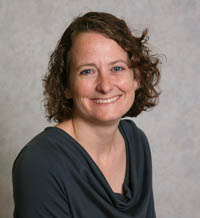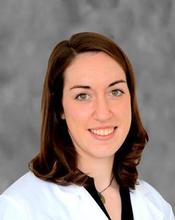MSU’s mission to train rural doctors
For more than 40 years, would-be physicians have learned first-hand what it means to practice medicine in the sparsely populated Upper Peninsula.
The 12 students admitted each year to Michigan State University's College of Human Medicine Rural Physician Program get a stiff dose of the challenges, spending all of their third and fourth year of medical school in the U.P.
At the end of their third year, they are assigned eight weeks in a rural community, often splitting time between two family practice physicians. Students shadow the doctors in their office, hospital, at nursing homes or on home visits.
Spring Madosh has vivid memories of the eight weeks she spent 2008 in Calumet, a community of about 700 residents in the UP's Keweenaw Peninsula.
“It was eye-opening,” said Madosh, 31, a native of rural Wisconsin who enrolled at MSU in large part because of its rural practice program. She graduated from MSU's College of Human Medicine in 2010.
RELATED:In rural Michigan, a doctor shortage promises to get worse
During that rural assignment, Madosh split her time between two family practice physicians, tagging along on about 10 home visits, as well as trips to nursing homes.
“On the home visits, you see so many of the factors that affect their health; what's in the cupboard, how they eat. They were invaluable.”
After completing her family practice residency in 2013, Madosh set up shop in the same U.P. community where she performed her rural apprenticeship.
“It was the right choice for me,” said Madosh, who said she found no other medical school with a comparable rural program at the time she applied.
It's worked well enough that MSU officials set up a similar program three years ago in the Lower Peninsula. The idea: Equip medical residents with the unique skills they'll need when they might be only doc in town. For a rural family practice physician, that means the ability to diagnose and treat a wide range of ailments, often without the backup of a specialist. Often, it also means the flexibility to conduct home visits when needed.
“Practice in a rural community is different,” said Aron Sousa, senior associate dean for MSU's College of Human Medicine.
“Physicians have to be able to work with the general community on a whole range of health issues, from working with the schools to geriatrics. You have fewer colleagues to work with.
“You need to be a physician who is willing to take on those challenges.”
Since its founding in 1974, according to MSU data, more than 230 physicians have completed the U.P. rural practice program, more than half in primary care, with 88 graduates now in rural practice and 67 in practice in the U.P.
In 2012, MSU established the Rural Community Health Program in the Lower Peninsula, admitting six students each to medical campuses in Traverse City and Midland. It graduated its first class this year.
“Our goal by the time they graduate is that they have a really good understanding of what it would be like to practice in a rural community in Michigan,” said Andrea Wendling, 46, the program's director. She is a rural family practice physician herself, an MSU associate professor and director of the medical school's rural health curriculum.
Wendling, who graduated from MSU's College of Human Medicine in 1994 and completed her residency in 1997, has practiced in tiny Boyne City in the Lower Peninsula's Charlevoix County since 2003. That's when she and her husband, Mike Harmeling, also a family practice physician, decided to move their practice. It made sense, since they both grew up in rural areas.
“We felt like we were living this suburban life that we never set out to live,” Wendling said.
Though Wendling now splits her time between family practice medicine and faculty duties, she hasn't lost her zeal for rural medicine. It sounds as much like a calling as a profession to hear her describe it.
“To be successful in a small town, you really need to be somebody people can trust. You are going to build a reputation one way or another in a small town. You want to be somebody who builds that reputation in a positive way.”
To Wendling, the rewards transcend money.
She recalled a family camping trip three years ago to a state park in Charlevoix County, when a nearby camper suffered a heart attack. He was the grandfather of friends of hers – and naturally, neighboring campers knew where to find the town doc.
In her pajamas, she performed CPR and then helped defibrillate him when EMS help arrived. He survived.
“Two weeks later,” she said, “he came to the office with flowers.”
See what new members are saying about why they donated to Bridge Michigan:
- “In order for this information to be accurate and unbiased it must be underwritten by its readers, not by special interests.” - Larry S.
- “Not many other media sources report on the topics Bridge does.” - Susan B.
- “Your journalism is outstanding and rare these days.” - Mark S.
If you want to ensure the future of nonpartisan, nonprofit Michigan journalism, please become a member today. You, too, will be asked why you donated and maybe we'll feature your quote next time!


 Andrea Wendling, a small town physician and director of Rural Health Curriculum for Michigan State University’s College of Human Medicine: “To be successful in a small town, you really need to be somebody people can trust.” (courtesy photo)
Andrea Wendling, a small town physician and director of Rural Health Curriculum for Michigan State University’s College of Human Medicine: “To be successful in a small town, you really need to be somebody people can trust.” (courtesy photo) Spring Madosh, a family practice doctor in the UP, found her medical school rural practice training “eye opening.” (courtesy photo)
Spring Madosh, a family practice doctor in the UP, found her medical school rural practice training “eye opening.” (courtesy photo)